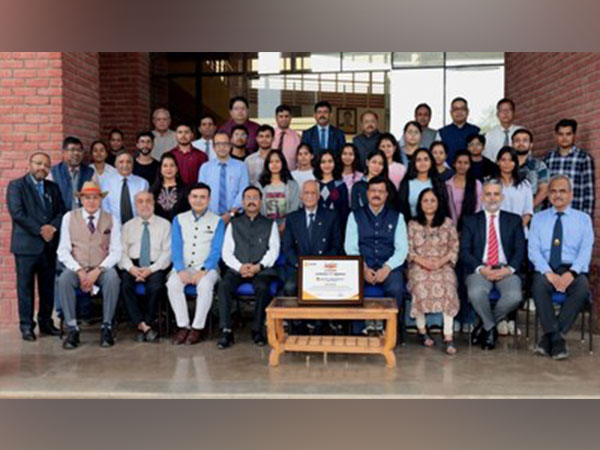Advancements in Breast Cancer Treatment: Insights from Dr Mahesh Bandemegal
Jun 20, 2024
PNN
Bangalore (Karnataka) [India], June 20: Breast cancer remains one of the most prevalent cancers worldwide, affecting millions of women annually, and although less common, it can also occur in men. Dr Mahesh Bandemegal, a senior surgical oncologist with extensive experience in breast oncoplastic surgery and advanced techniques such as robotic surgery and HIPEC procedures, provides a comprehensive overview of the latest developments in the diagnosis, treatment, and prevention of breast cancer.
About Dr Mahesh Bandemegal
Dr Mahesh Bandemegal is renowned in the field of surgical oncology, particularly in breast conservation and oncoplastic surgery. With advanced training in robotic-assisted surgeries, Dr Bandemegal focuses on organ preservation and innovative breast cancer treatment protocols. His accolades include prestigious awards such as the Saraswati Jagmohan Parikh and Renu Govindji Agrawat Gold Medals, recognizing his significant contributions to oncology. Dr Bandemegal also specializes in managing cancers of the esophagus, stomach, colon, and rectum, and is a pioneer in cytoreductive surgery for peritoneal cancer.
Understanding Breast Cancer
Breast cancer originates from breast tissue and often manifests as a lump in the breast or armpit, or thickened tissue. Other symptoms may include changes in breast size or shape, skin dimpling, nipple discharge, or red patches on the skin. It is crucial to note that not all breast changes indicate cancer.
Risk Factors
Gender and Age: Women are at higher risk, with risk increasing with age.
Genetics: Family history, particularly involving first-degree relatives, and genetic mutations in genes like BRCA1 and BRCA2 significantly raise the risk.
Reproductive History: Factors such as early menstruation, late menopause, and having children later in life or not at all can increase risk.
Lifestyle Factors: Smoking, excessive alcohol consumption, a high-fat diet, and lack of physical activity are known contributors.
Diagnosis
Early detection is crucial for a better prognosis in breast cancer. Diagnostic methods include:
Physical Examinations: Detecting lumps or physical changes.
Mammography: X-ray screening of the breast.
Ultrasound: Differentiates between solid masses and cysts.
MRI: Provides detailed breast images and is often used with mammograms.
Biopsy: The definitive diagnostic method, involving the examination of cells or tissues.
Treatment Options
Treatment varies based on cancer stage, patient health, and personal preferences:
Surgery: Removal of cancerous tissue, with breast-conserving surgery being standard for early breast cancer. Oncoplastic surgery enhances oncologic clearance and cosmetic outcomes. Mastectomy may be necessary in some cases.
Radiation Therapy: High-energy rays target and kill cancer cells.
Chemotherapy: Drugs are used to kill cancer cells, especially if cancer has spread.
Hormonal Therapy: Blocks cancer cells from receiving growth hormones.
Targeted Therapy: Drugs or substances precisely target cancer cells with minimal damage to normal cells.
Prevention and Early Detection
Preventive measures can reduce breast cancer risk:
Regular Screening: Adherence to mammogram guidelines based on age and risk factors.
Healthy Lifestyle: Maintaining a healthy weight, regular exercise, limited alcohol, and avoiding smoking.
Medication and Surgery: High-risk women might consider medications like tamoxifen or prophylactic mastectomy.
The Future of Breast Cancer Treatment
Advancements in personalized medicine and genomics are leading to more tailored cancer treatments. Researchers are exploring genetic changes that drive breast cancer, aiming to develop targeted therapies that are more effective and have fewer side effects.
Dr Mahesh Bandemegal emphasizes that while a breast cancer diagnosis can be daunting, medical advancements have significantly improved survival rates and quality of life post-treatment. Awareness, early detection, and a proactive health approach are vital in combating breast cancer.
(ADVERTORIAL DISCLAIMER: The above press release has been provided by PNN. ANI will not be responsible in any way for the content of the same)








